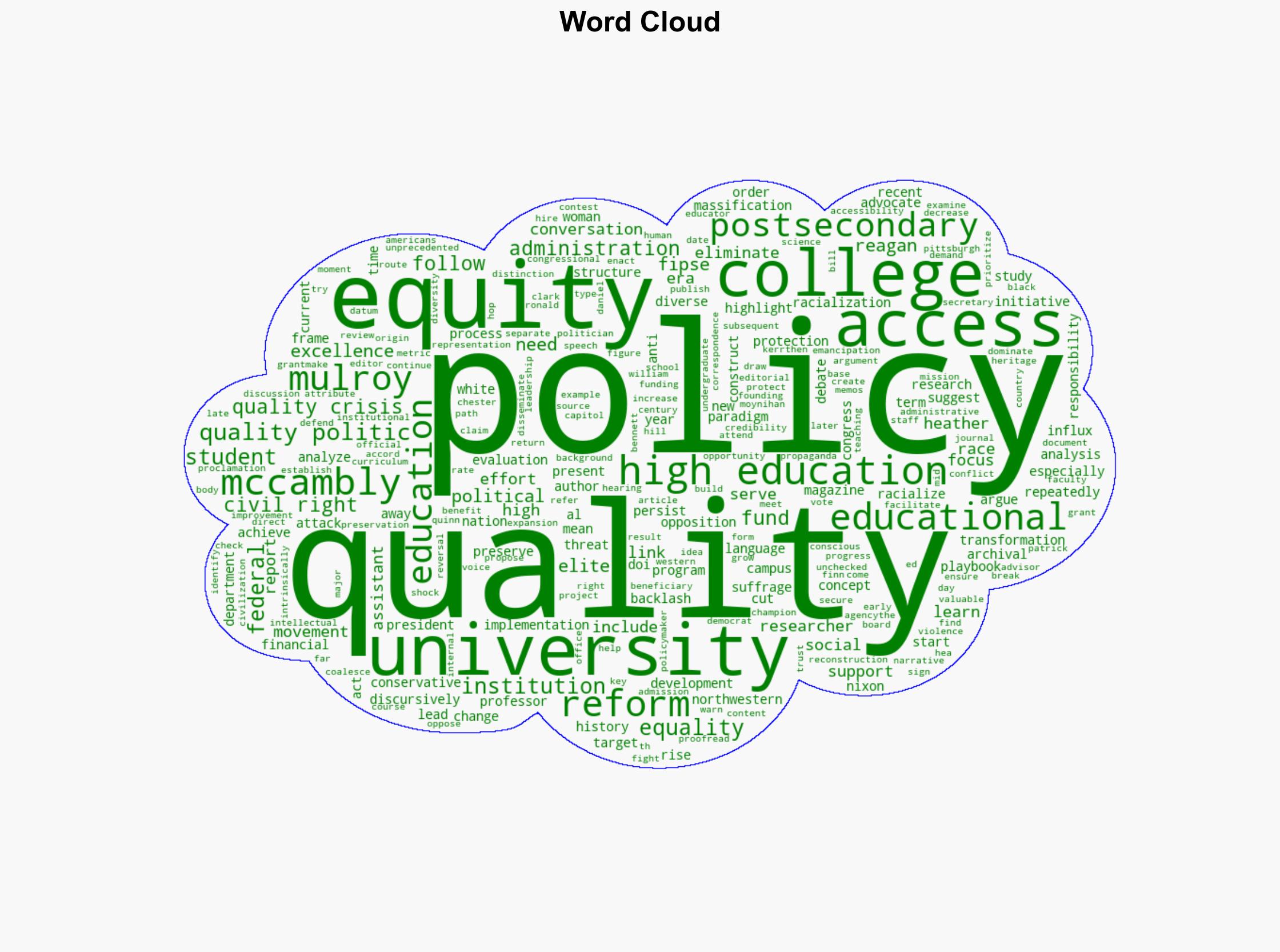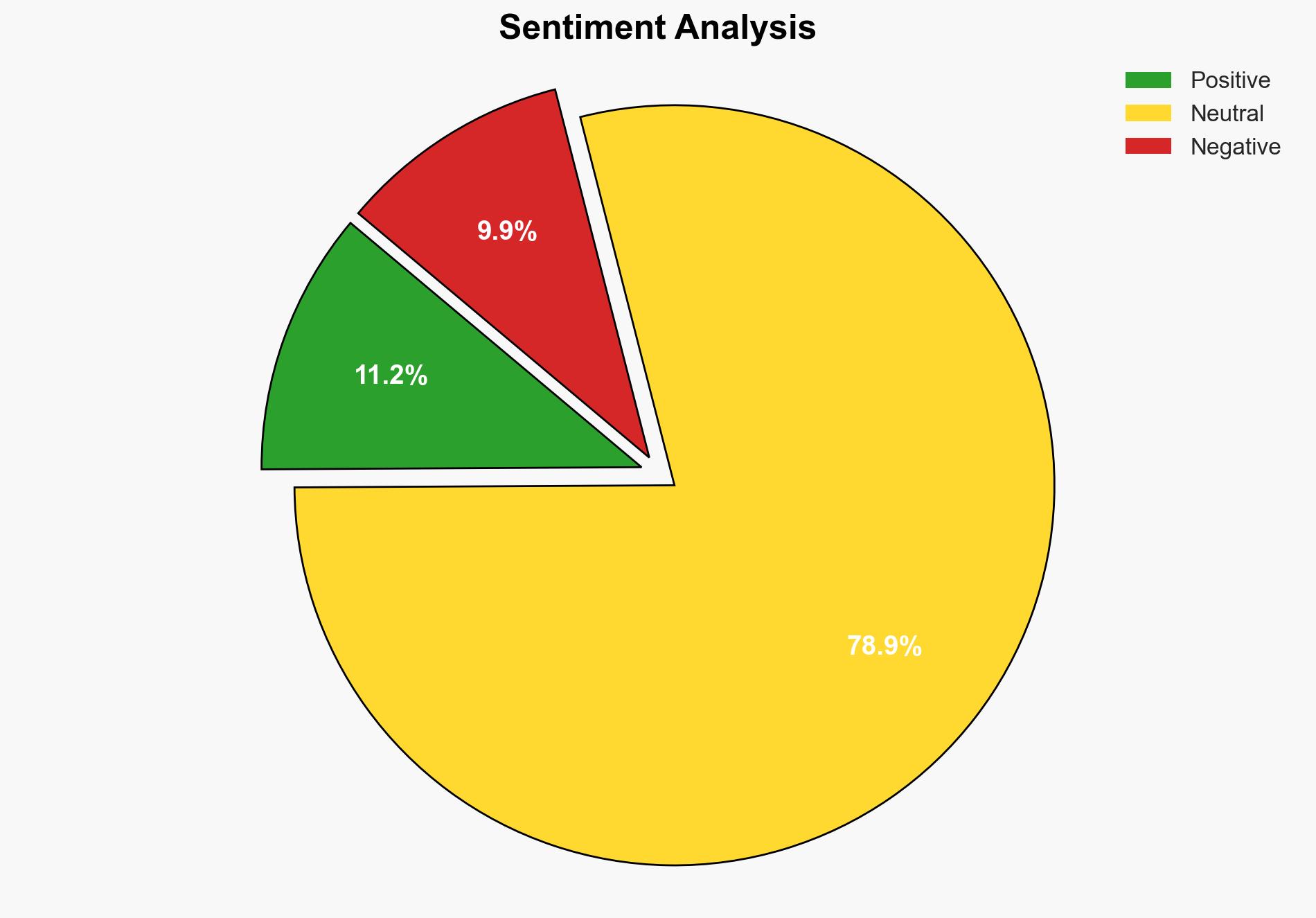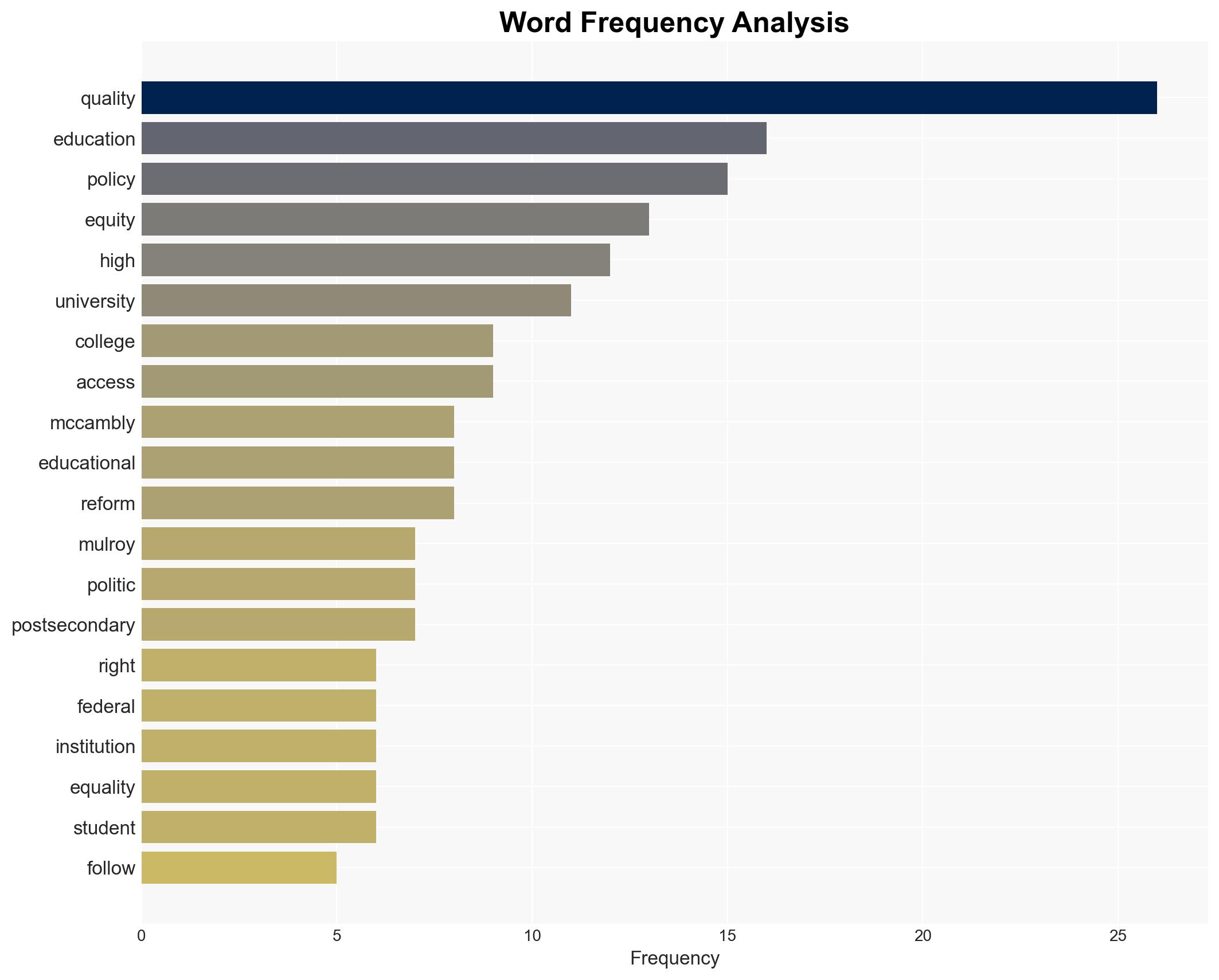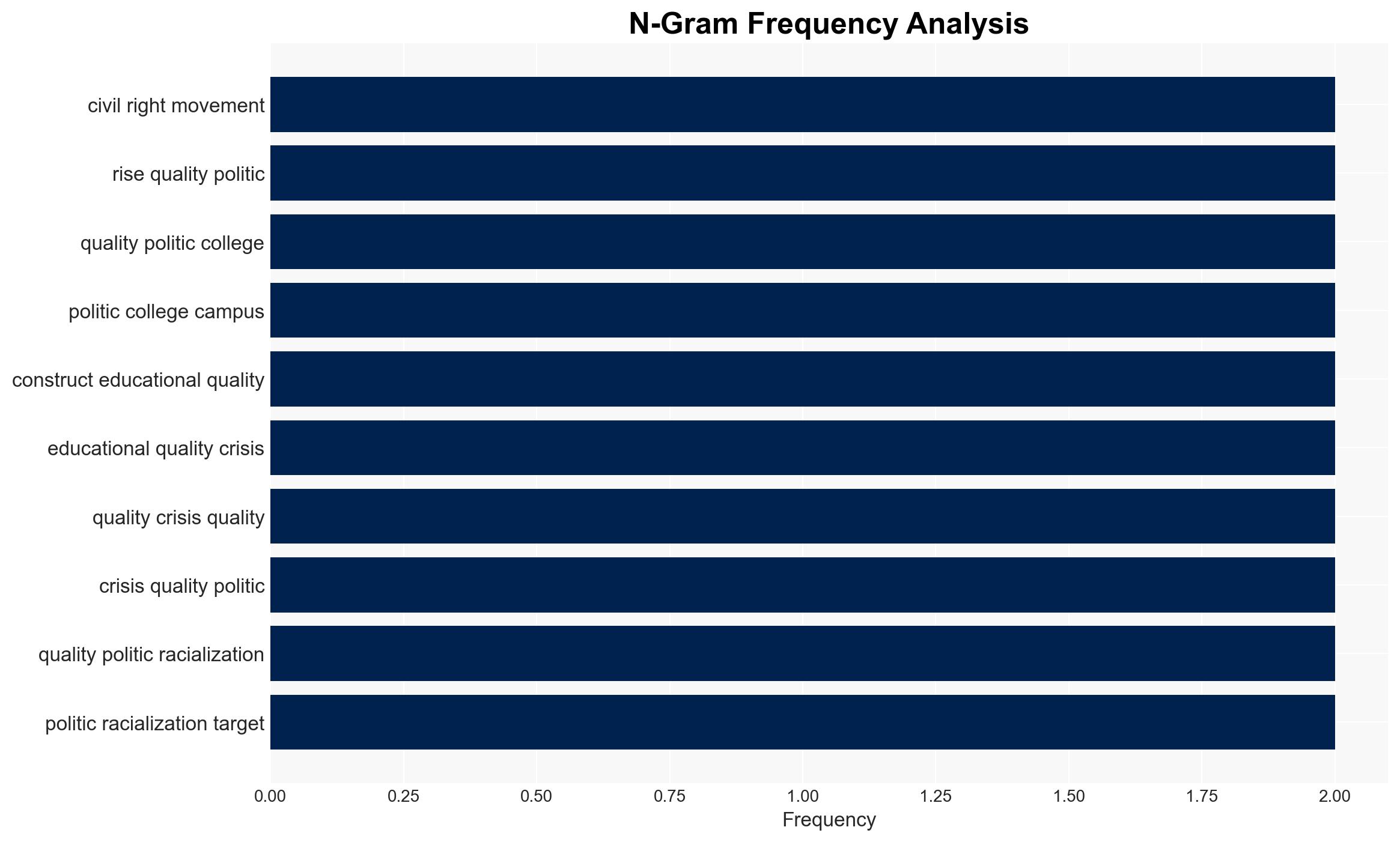Research suggests attacks on higher ed part of a ‘political playbook’ since the Civil Rights Movement – Phys.Org
Published on: 2025-04-04
Intelligence Report: Research suggests attacks on higher ed part of a ‘political playbook’ since the Civil Rights Movement – Phys.Org
1. BLUF (Bottom Line Up Front)
Recent research indicates that attacks on higher education institutions are part of a longstanding political strategy dating back to the Civil Rights Movement. This strategy involves efforts to cut federal funding and eliminate diversity initiatives, which are seen as part of a broader backlash against social and political progress. The study highlights the historical pattern of such attacks following major civil rights advancements, suggesting a need for strategic interventions to protect educational equity and quality.
2. Detailed Analysis
The following structured analytic techniques have been applied for this analysis:
General Analysis
The research by Quinn Mulroy and Heather McCambly examines archival documents, including congressional hearings and administrative correspondence, to trace the political discourse surrounding higher education. The study identifies a constructed “educational quality crisis” that is racially charged and politically motivated. This crisis is used to justify anti-equity policies and reduce access to higher education for marginalized groups. The historical context provided shows a pattern of backlash against policies that increase access to education, such as the Civil Rights Act and the Higher Education Act.
3. Implications and Strategic Risks
The continuation of this political playbook poses significant risks to educational equity and national progress. The reduction in federal funding and diversity initiatives could lead to decreased access to higher education for minority groups, impacting social mobility and economic equality. Additionally, these actions may exacerbate racial tensions and undermine efforts to create an inclusive society. The strategic risk includes potential destabilization of educational institutions and a decline in the quality of education, which could affect the nation’s global competitiveness.
4. Recommendations and Outlook
Recommendations:
- Implement policies that safeguard federal funding for educational institutions and protect diversity initiatives.
- Encourage transparency and accountability in educational policy-making to prevent politically motivated attacks.
- Foster partnerships between government agencies, educational institutions, and civil rights organizations to promote equity in education.
Outlook:
Best-case scenario: Increased awareness and proactive measures lead to the preservation and enhancement of educational equity and quality.
Worst-case scenario: Continued political attacks result in significant cuts to funding and diversity initiatives, widening the educational gap.
Most likely outcome: Ongoing political debates with incremental progress towards protecting educational equity, contingent on policy interventions.
5. Key Individuals and Entities
The report mentions significant individuals such as Quinn Mulroy and Heather McCambly, who have contributed to the research and analysis of this issue. Their work provides critical insights into the historical and current political strategies impacting higher education.





